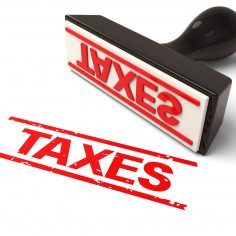Health-care worker Katelin Noffsinger told a potential employer that she took medical cannabis to deal with the effects of a car crash, but when a drug test came back positive, the nursing home rescinded her job offer anyway.
A federal judge ruled in September 2018 that the nursing home, which had cited federal laws against cannabis use, violated an anti-discrimination provision of Connecticut‘s medical marijuana law.
It was the latest in a series of clashes between U.S. and state laws around the country that came out in favor of medical cannabis users trying to keep or obtain jobs with drug-testing employers.
The Connecticut decision was the first ruling of its kind in a federal case and followed similar recent rulings against employers by state courts in Massachusetts and Rhode Island. Earlier rulings had gone against medical cannabis users in employment cases by state supreme courts, including those in California, Colorado, Oregon, and Washington, over the past few years.
Advocates hope new the new decisions are a signal of growing acceptance of cannabis’ medicinal value.
“This decision reflects the rapidly changing cultural and legal status of cannabis, and affirms that employers should not be able to discriminate against those who use marijuana responsibly while off the job, in compliance with the laws of their state,” said Paul Armentano, deputy director of the National Organization for the Reform of Marijuana Laws (NORML).
Medical marijuana, like the cannabis cuttings growing in a Sira Naturals cultivation facility in Milford Massachusetts, is reshaping employment law. A U.S. District judge in New Haven, Connecticut, ruled in favor of a woman who alleged a prospective employer discriminated against her when she sought a health-care job and informed the company she used medical marijuana to treat post-traumatic stress disorder (PTSD) resulting from a car crash. The judge found that the nursing home violated Connecticut’s anti-discrimination law protecting medical cannabis users despite marijuana remaining illegal at the federal level. (Associated Press File Photo/Steven Senne)
Noffsinger sued Bride Brook Health and Rehabilitation Center in Niantic in 2016. She had been offered, and accepted, a job as recreation therapy director at the nursing home, contingent on her passing a drug test.
She told the nursing home that she took synthetic marijuana pills — legally under state law and only at night — to treat the post-traumatic stress disorder (PTSD) she developed after the 2012 car accident. But the company rescinded the job offer after the drug test came back positive for THC, the chemical in marijuana that gets people high.
As a federal contractor, the nursing home worried that it could be cut off from that revenue if it employed somebody who tested positive for drugs.
On Sept. 5, 2018, U.S. District Judge Jeffrey Meyer in New Haven ruled Bride Brook discriminated against Noffsinger based solely on her medical cannabis use in violation of state law. He denied her request for punitive damages. The case is now heading to a trial on whether Noffsinger should receive compensatory damages for lost wages from not getting the job.
A lawyer for the nursing home, Thomas Blatchley, declined to comment.
Noffsinger’s attorney, Henry Murray, said his client would not comment on the lawsuit. He said Noffsinger has taken another job in the health-care industry that doesn’t pay as much as the Bride Brook job.
In his ruling, Meyer said the federal Drug Free Workplace Act, which many employers including federal contractors rely on for policies on drug testing, does not actually require drug testing and does not prohibit federal contractors from employing people who use medical cannabis outside the workplace in accordance with state law.
The decision will likely be used in arguments in similar cases elsewhere, said Fiona Ong, an employment attorney with the Baltimore firm of Shawe Rosenthal.
“This is a very significant case that throws the issue in doubt for many of these federal contractors,” Ong said. “It’s certainly interesting and may be indicative of where the courts are going with this.”
Thirty-one states, Washington, D.C., Puerto Rico, and Guam now allow medical marijuana, while 15 others have approved low-THC products for medical reasons in certain cases, according to the National Conference of State Legislatures. Nine states and Washington, D.C., have legalized recreational marijuana.
Only nine states including Connecticut, however, specifically ban employment discrimination against medical marijuana users, who could continue to face difficulties in obtaining or keeping jobs in the 41 other states, employment lawyers say.
In Massachusetts, the state’s highest court ruled in 2017 that a sales and marketing company wrongly fired a worker after her first day on the job after she tested positive for cannabis, which she used under the state’s medical marijuana law to treat her Crohn’s disease. Also in 2017, the Rhode Island state Supreme Court said a college student was wrongly denied an internship at a fabric company where officials refused to hire her after she acknowledged she could not pass a drug test because she used medical marijuana.
In both cases, the two women told the companies during the hiring process that they used medical marijuana, but would not consume it while on the job.
The American Bar Association called the Connecticut, Massachusetts, and Rhode Island cases “an emerging trend in employment litigation” and cautioned employers to consider state medical cannabis laws when analyzing their drug use and testing policies.
Several bills are pending before Congress that would undo marijuana’s Schedule I classification as a controlled substance with no medicinal value. But Armentano of NORML said it is unlikely they will go anywhere while Republicans control Congress.
Some employers, though, have dropped marijuana from the drug tests they require of employees, saying the testing excludes too many potential workers in a challenging hiring environment.









